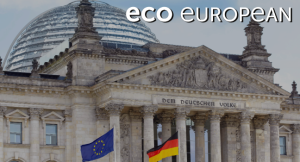The political parties CDU, CSU and SPD carried out preliminary negotiations after the February federal election. The results are now subject to discussion within politics, the economy and civil society. As eco Chair of the Board, Oliver Süme put it: “There is still much room for improvement in the current negotiation results” – especially when it comes to digitalisation.
In fact, there is no clear vision for a digital Germany in 2030, no comprehensive digital strategy, no independent digital budget or the necessary cornerstones for a future-proof Ministry of Digitalisation – all of which the Association advocated before the election.
eco is therefore calling for decisive action in the ongoing coalition process: the incoming government needs to make the right decisions to catch up not only with Germany’s digital backlog but also to set the course for the country’s digital future.
From what is known so far, there will be two exceptional meetings of the previous parliament before the newly elected members of parliament take their seats on 25 March. One important topic of these meetings is a special fund for infrastructure, which eco considers to be a crucial contribution to improving Germany’s overall infrastructure. However, this cannot be done without addressing the structural challenges, such as bureaucratic hurdles.
In this issue, we provide not only the key insights you need to know after the federal election, but we also address the European AI innovation agenda, with eco Managing Director Andreas Weiss commenting on the regulation of Artificial Intelligence within the EU. Additionally, you get to read about how to implement NIS2 and the ENISA in your company. We also talked to Dr. Judith Puttkammer, the new Board Member of eco’s Mobility Competence Group, about the importance of sovereign data spaces and what she thinks should be prioritised in mobility regulation.
Enjoy reading!

